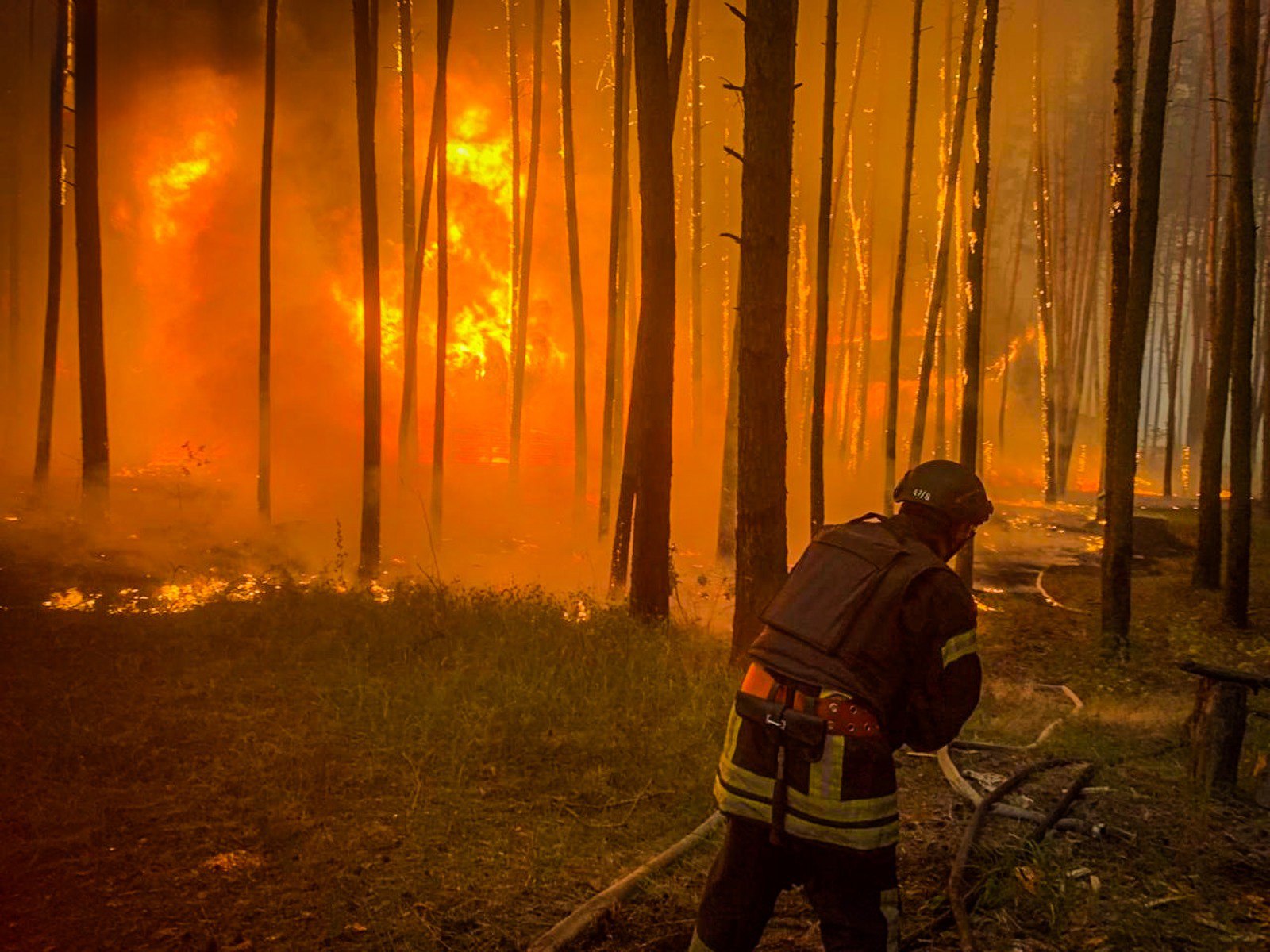Ukraine’s Intelligence Warns Russia Becoming a Global Environmental Threat

Russia’s war on Ukraine has not only devastated cities and infrastructure but is also leaving a deep environmental scar.
The Gaze reports this, referring to a new assessment by Ukraine’s Foreign Intelligence Service.
The analysis concludes that Moscow’s military campaign, combined with domestic mismanagement, is accelerating climate risks worldwide.
The agency estimates that Russia’s full-scale invasion generated about 175 million tons of CO₂-equivalent emissions during its first two years, comparable to Austria’s annual output, and more than 230 million tons over three years.
Massive wildfires in Siberia and Yakutia in 2024 destroyed millions of hectares of forest, turning critical carbon sinks into major sources of greenhouse gases.
At the same time, Russia has seen a surge in pollution at home: emissions rose to 22,070 tons, wastewater discharges increased by 3.1%, and damaged land expanded by nearly 10,000 hectares.
Average national temperatures climbed 1.21°C above normal, while coniferous forest cover has shrunk to 517.8 million hectares over the past decade.
Environmental disasters linked to the war have compounded the crisis. Two tankers, Volgoneft-212 and Volgoneft-239, spilled 3,700 tons of oil products into the Black Sea, contaminating 200 kilometers of coastline, killing marine life, and poisoning coastal ecosystems.
Meanwhile, Russia’s so-called “shadow fleet,” responsible for transporting 84% of cargo along the Northern Sea Route, threatens the Arctic with no infrastructure in place to respond to spills.
The report also highlights Russia’s weak climate policies, describing its targets as “critically insufficient” and out of line with the Paris Agreement.
Recent Kremlin decrees even allow for higher greenhouse gas emissions, signaling, according to Ukrainian intelligence, that Moscow is willing to sacrifice environmental security for short-term economic and military goals.
“Russia is increasingly emerging not only as a military aggressor, but also as a global environmental predator, whose actions pose a danger to the future of all humanity,” the intelligence service warned.
As The Gaze reported earlier, Swiss documentary filmmaker Yves Maga called for stronger global awareness of the environmental destruction caused by the Russian-Ukrainian war.